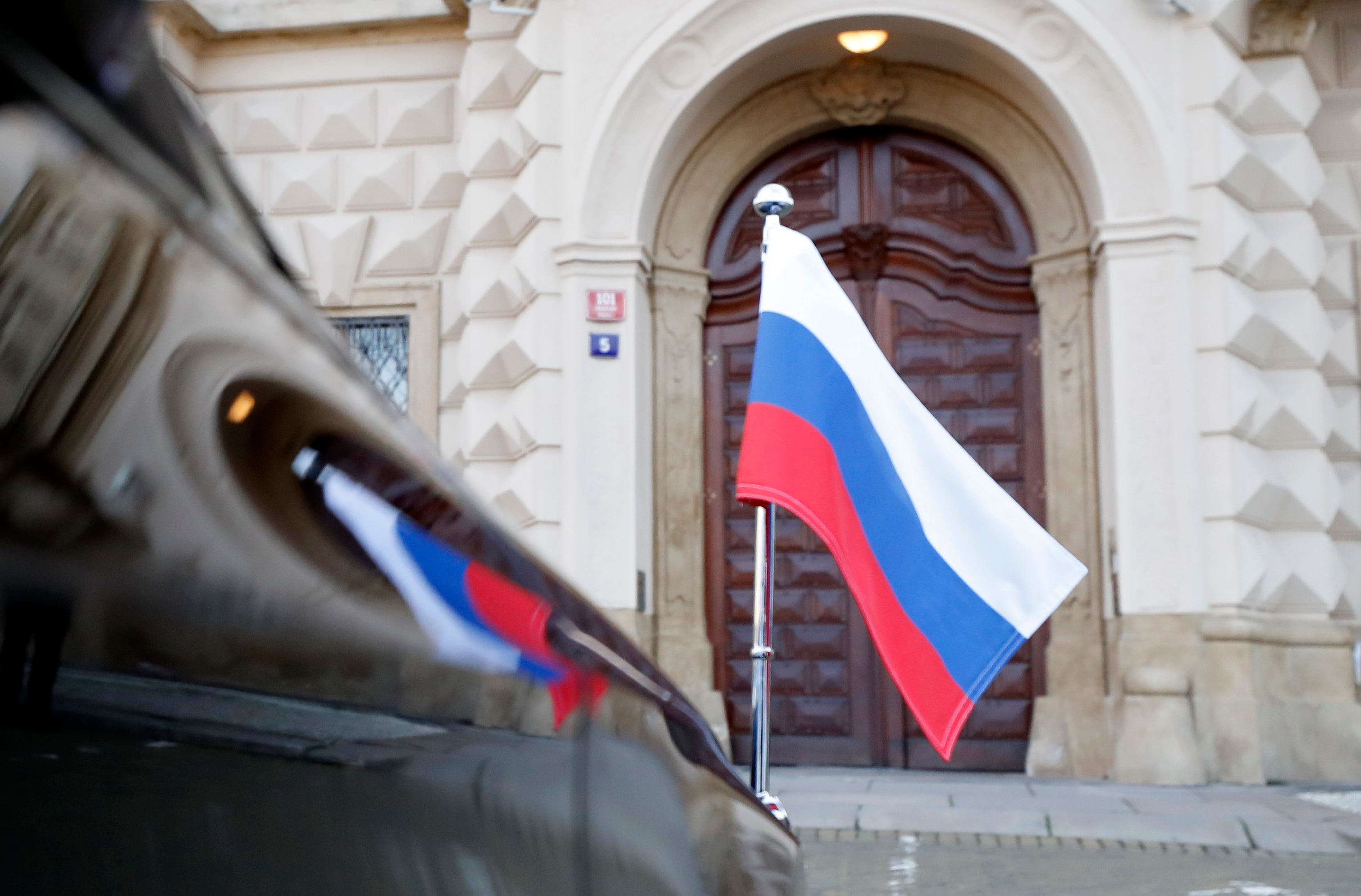Czechs expel more Russians in dispute over 2014 depot blast
The Czech Republic has ordered more Russian diplomats to leave the country

The Czech Republic on Thursday ordered more Russian diplomats to leave the country, further escalating a dispute between the two nations over the alleged involvement of Russian spies in a massive ammunition depot explosion in 2014.
Foreign Minister Jakub Kulhanek said Russia won't be allowed to have more diplomats in Prague than the Czechs currently have at their embassy in Moscow All others have to leave by the end of May, he said.
He estimated about 60 Russians will have to go.
The Czech secret services have repeatedly warned that Moscow had a disproportionately high number of diplomats at the embassy in the European Union nation, using it as a base for undercover spies.
“I don't want to escalate anything,” Kulhanek said. “It's not a role for the foreign minister. But the Czech Republic is a self-confident country and will act accordingly.”
He said the Czechs had to response to the activities of Russian agents on Czech territory.
“It's the Russian side that have paralyzed the situation, not the Czech side,” he said, adding Prague was ready to discuss with Moscow how to set the number of employees at their diplomatic missions “to enable their effective functioning.”
Moscow responded immediately.
"Prague has come on a path of destroying relations. We will respond quickly,” Russian Foreign Ministry spokeswoman Maria Zakharova said. “They have gotten stuck in unbridled Russophobia.”
Last weekend, the Czech government expelled 18 Russian diplomats it identified as spies from the GRU and the SVR, Russia’s military and foreign intelligence services. In response, Russia expelled 20 Czech diplomats.
The Czech government protested what it called Russia’s “inappropriate reaction,” saying the move had paralyzed the Czech Embassy in Moscow.
Kulhanek had given the Russian government a Thursday noon deadline to allow the return of the 20 Czech diplomats or see their staff at the Russian Embassy in Prague cut to the number remaining at the Czech Embassy in Moscow.
The minister said Russia did not give an official response.
“The Czech Republic is interested in having correct relations with the Russian Federation based on the principle of two sovereign states,” Prime Minister Andrej Babis said. “We hoped that Russia acknowledges that its reaction was inappropriate but our proposal to cool down the situation was not answered.”
The Russian Foreign Ministry summoned the Czech ambassador to the ministry on Thursday.
“This kind of tone is unacceptable while talking to Russia,” Zakharova said.
Czech leaders said Saturday they have evidence provided by the intelligence and security services that points to the participation of two agents from Russia's elite GRU Unit 29155 in the 2014 depot blast that killed two people. Russia denied that.
The same two Russians were charged by British authorities in absentia in 2018 with trying to kill former Russian spy Sergei Skripal and his daughter with the Soviet-era nerve agent Novichok in the English city of Salisbury.
Kulhanek and Michal Koudelka, the head of the Czech counterintelligence service known as BIS, briefed NATO allies on the situation Thursday and the allies threw their weight behind the Czechs.
“Allies express deep concern over the destabilizing actions that Russia continues to carry out across the Euro-Atlantic area, including on Alliance territory, and stand in full solidarity with the Czech Republic,” they said in a statement.
___
Vladimir Isachenkov in Moscow contributed.
Bookmark popover
Removed from bookmarks